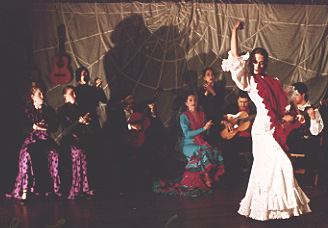The Widespread Appeal of Flamenco

The Widespread Appeal of Flamenco

| A remarkable thing about Flamenco is that it has transcended social, political, and even national boundaries in its popular appeal to enthusiastic aficionados everywhere. So, how can a type of ethnic folk music born out of the need to express the stress and frustration of Spanish underclasses have such enduring meaning, even to people in distant lands who never shared the traumatic events that spawned it? A partial explanation of this phenomenon might be the ability of the best flamenco cantaores to distill centuries of pain and oppression in the performance of their art and express it convincingly in the very tone of the voice. Some of these, such as Jose Monje Cruz (better known as Camaron de la Isla), developed an impressionistic singing style that echoed the traumas and tortured lifestyles of their flamenco progenitors, essentially transposing and translating the traditional themes of gitano angst into a stylized musical mood that a wider range of listeners could relate to. Other more recent artists, such as the Gypsy Kings, have taken the process a step further resulting in an internationalized form of flamenco-flavored music that has joined the so-called "world beat" genre (witness their flamenco version of the Frank Sinatra hit, "My Way"). All of this is anathema to purists, of course, who must be content to keep the unadulterated forms alive in their own breasts while the world at large keeps spinning along on its merry way. |
Un ensayo sobre el arte del flamenco
